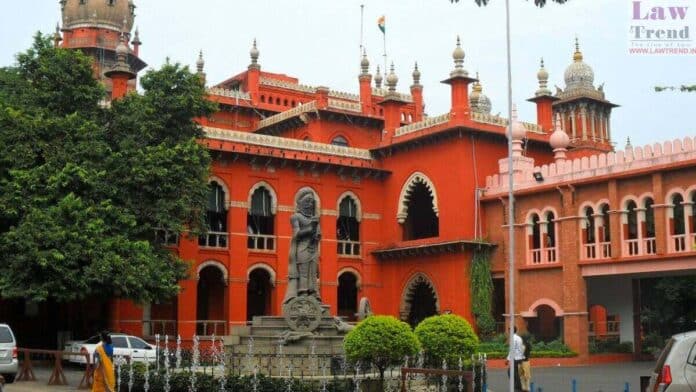The Madras High Court on Wednesday directed the National Commission for Scheduled Castes to issue a fresh notice to the parties and proceed with the inquiry and pass appropriate orders on the complaint, alleging that the land occupied by the Murasoli Trust, is a Panchami land assigned to the Scheduled Caste people and illegally transferred in the name of other persons.
Justice S M Subramaniam gave the directive while dismissing a writ of prohibition petition filed by Murasoli Trust, which runs a Tamil daily ‘Murasoli, a DMK party organ, represented by its trustee R S Bharathi. It sought to restrain the NCSC from proceeding with the hearing or adjudication of the complaint filed by R Srinivasan of the BJP in October 2019.
The judge said documents produced by the government of Tamil Nadu and on behalf of the NCSC and the inconsistencies pointed out by the senior counsel for the complainant with reference to the said documents and revenue records would be sufficient to form an opinion that disputed facts exist. Such disputed facts relating to immovable properties cannot be adjudicated in the present writ proceedings, the judge added.

The judge said the complaint before the National Commission for Scheduled Castes was that the Panchami lands ((Depressed Class Land), allotted to scheduled caste members were transferred to other persons in an illegal manner. Thus an investigation and an inquiry by the commission was warranted for the purpose of ascertaining the truth regarding the character of the land in safeguarding and protecting the interest of the scheduled caste members.
The notices issued by the commission to the petitioner to appear before the third respondent, L Murugan, lost its relevance, since he came to be appointed as a minister and presently was not holding the post of Vice-Chairman of NCSC, the judge said and gave the above directions.
The judge said when the petitioner claims that they were the owners of the property and the subject property was not Panchami land, equally the complainant was entitled to establish his case by producing documents and evidence before the NCSC. Such an adjudication in the present case was inevitable since the allegations were serious, causing infringement of the rights of the members of the scheduled caste community.
Also Read
However, this court was not inclined to scrutinise or consider any of the documents filed either on the side of the petitioner or by the complainant, since the high court cannot adjudicate disputed facts in the present writ of prohibition, the judge added.
The judge said the high court cannot conduct a roving inquiry to identify the character of an immovable property or the classifications originally made and the developments made subsequently. Whether any transfer of Panchami land by reclassifying the land or otherwise made was to be inquired into for the purpose of ascertaining the truth.
The High Court in writ proceedings cannot usurp the powers of the Commission. Such original powers have to be exercised in the manner contemplated under Article 338 of the Constitution and the rules of procedures framed thereunder, the judge said.
In the event of deciding any such disputed facts in the writ proceedings, no doubt, parties will be prejudiced. Any finding in this regard would result in miscarriage of justice and therefore, all such allegations in all circumstances must be inquired into by the competent forum, the judge added.







